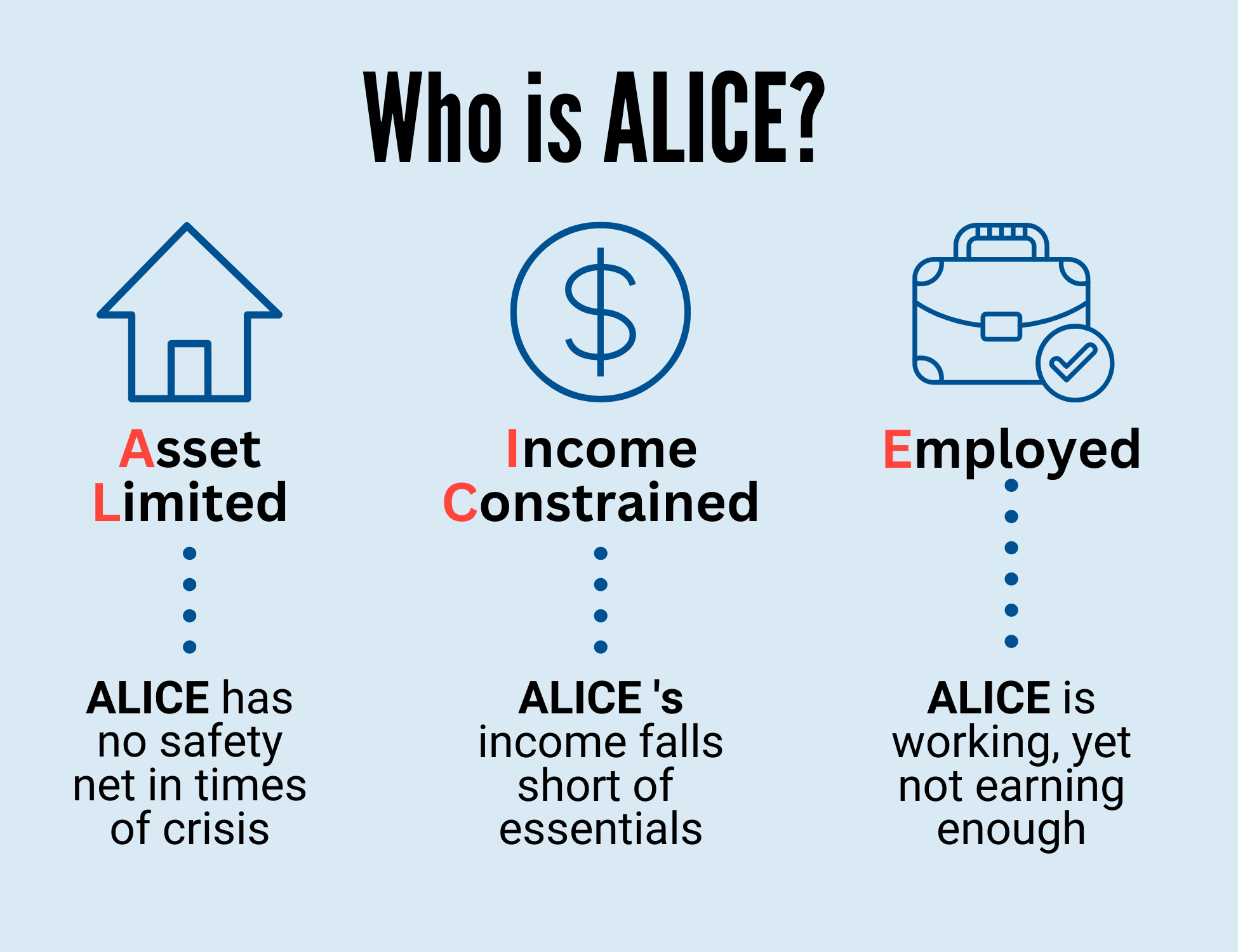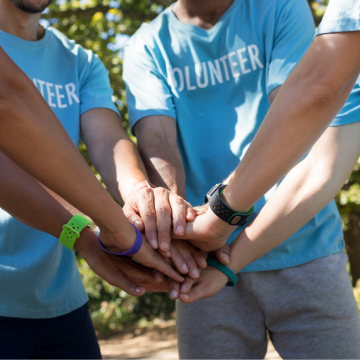As we prepare for a new year and a new presidential administration, the single biggest concern on Americans’ minds is prosperity. In fact, 81% of surveyed voters say the economy is the most important issue to address in the near future. But rather than waiting for politicians to deliver on their promises over the course of years, Americans everywhere have the power to help those struggling with financial instability directly, right now.
Giving Tuesday, observed on the Tuesday after Thanksgiving, is a global movement that invites people to give back to their communities rather than focusing exclusively on holiday shopping.
Although we associate this time with charitable giving, it’s important to understand the root causes of economic insecurity so that offering help for struggling families becomes a hand-up, not a handout. The single most powerful way we can do this is by supporting nonprofit organizations that help low-income families — not by offering charity but by providing real solutions that help hard-working low-income households and families achieve financial security. These Americans fall into a demographic known as ALICE.
Who is ALICE?

The acronym ALICE refers to households that are asset limited, income-constrained, employed. These individuals and families technically have income that falls above the (long-outdated) federal poverty line but still can’t afford basic necessities such as housing, food, childcare, health care, and transportation.
Currently, ALICE families represent a staggering 29% of the US population. Combined with those whose incomes fall below the poverty line, a full 42% of all Americans are struggling to make ends meet. In Pennsylvania, for example, about 28% of households fall into the ALICE demographic. In combination with those living below the poverty line, 41% of Pennsylvanians are trapped in a serious state of economic fragility.
Far from posing a dead weight on taxpayers, ALICE earners in fact often work in capacities that hold society together. Many are essential workers — teachers, health care staff, and retail employees — in jobs that are critical to the community, yet they are chronically underpaid. Despite their hard work, these families remain financially vulnerable, teetering on the edge of poverty and living just one emergency away from financial disaster.
Why Low-Income Families Struggle to Address Financial Insecurity
For ALICE earners, breaking the cycle of poverty and financial insecurity is a daunting challenge full of roadblocks. Several factors make it nearly impossible for them to get ahead no matter how hard they work:
- High cost of living. Inflation, particularly in housing and health care, has far outpaced wage growth. Lower-income groups are burdened not just by housing costs but by difficulty qualifying for home loans and employers who don’t provide adequate health insurance benefits. This locks families out of homeownership — the primary means of building wealth in America — and leaves them with painful choices between paying for medical care and other essential needs, such as groceries or childcare.
- Limited access to financial literacy and tools. Low-income families often don’t get the practical education needed to use sound financial strategies. Many also face barriers to key products that others commonly leverage to build wealth, such as savings accounts, low-interest credit cards, and affordable loans. Some communities are effectively shut out of mainstream banking systems altogether. Without these tools, it’s hard to accumulate savings or make investments that could lead to security and prosperity.
- Blocked pathways to upward mobility. Economic mobility in the US has stagnated, making it harder for ALICE families to climb the proverbial corporate ladder. Many face systemic barriers to career advancement, including racial and gender wage gaps, limited access to education, and unstable job markets. These factors and others (such as a lack of affordable childcare that would allow parents, especially women, to work full time or in higher-paying roles) make it difficult for families to move the needle on income.
- No safety net. Most ALICE families lack emergency savings. A medical emergency, car repair, or unexpected job loss can plunge them into debt. The COVID-19 pandemic exacerbated these vulnerabilities, leaving many households without a financial cushion to fall back on.
What Do Low-Income Families Need?
Clearly, the long-term solution to empowering ALICE Americans to succeed involves systemic federal and state policy changes in multiple arenas. In the meantime, nonprofits like United Way are providing programs to help low-income families set themselves up for success.
United Way of York County in Pennsylvania offers assistance with childcare, early learning, tax preparation, affordable prescriptions, and more. It also helps households take advantage of PA 211, a no-cost health and human services information and referral hotline that connects ALICE households with key resources they may otherwise not have known about.
Ways to Support Hard-Working Americans This Giving Tuesday
This Giving Tuesday, you can bypass politics and take meaningful action into your own hands by supporting nonprofits such as United Way of York County. Here's how:
Making Monetary Donations
Monetary gifts allow nonprofits to provide and expand essential human services such as housing assistance, job training, and emergency relief. You can give either a one-time gift or a recurring donation using a variety of payment methods. You can also build support into your living will with legacy giving.
Volunteering

If you’re unable to donate financially, consider giving your time. Volunteering not only helps the organization but also provides an opportunity for you to engage with your community in a meaningful, hands-on way. Political division in troubled times can make us feel powerless; taking action gives us a satisfying, mental-health-boosting way to solve problems.
Subscribing to Newsletters
Staying informed about the challenges low-income families face is another way to contribute to their well-being. By subscribing to the newsletters of organizations that support ALICE households, you can stay updated on their work and learn about new opportunities to help.
Leveraging Your Sphere of Influence
Another powerful way to give back is by using your own platform to raise awareness. Consider organizing a fundraiser or sharing information about the nonprofits you support with your network. The more people you reach, the greater impact you can make.
This Giving Tuesday, consider helping to provide ALICE families with the tools and resources they need to break the cycle of financial insecurity. Remember, every contribution counts in helping your neighbors and community members achieve lasting prosperity.
Offer Lasting Help to Low-Income Families in Pennsylvania With United Way of York County
United Way of York County in Pennsylvania assists hard-working households on their journey toward financial stability. To meet the needs of the ALICE population, we are embarking on an issue-focused strategy to create transformational impact for workers. We are focusing on two key barriers: childcare and transportation. We also offer many other resources through PA 211, a free, confidential health and human services information and referral hotline.
We do what no single organization can do alone: We tackle the toughest issues facing our community-working households struggling to cover basic living expenses. But we need your support to do it. With one donation, you can help neighbors and friends. Gifts to the United Way of York County Impact Fund are dollars that stay in York County and impact lives where you live and work. Sign up for updates to see how YOUR support is impacting lives in our community.
You can also volunteer with us to help local families with tax preparation. In addition to help preparing taxes, we need greeters, screeners, and translators. Contact us today to see how you can improve the lives of fellow Pennsylvanians!
